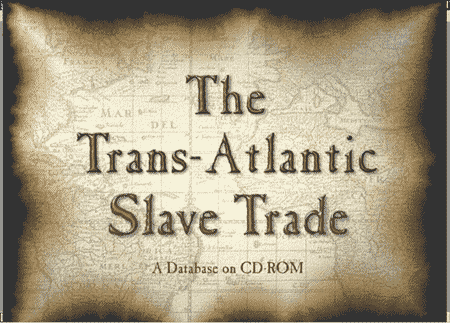
The 200th commemorative anniversary of the abolition of the slave trade was marked by Ken Livingstone with a suitably emotional and tearful apology on behalf of London and its part in it. The capital's Mayor wept openly as he told the audience about the atrocities millions had to endure during their transportation from Africa and the legacy of that singular act of inhumanity.
Having thought deeply about it for a few days, I believe he was wrong to apologise.
It is easy to seek current retribution for past wrongs. It has become increasingly fashionable to demand an empty apology, one that applies guilt by proxy, hoping that it will somehow make things better 200 years down the line. But apologies are just words which make the people who utter them feel good and those hearing them feel vindicated, but offer no guarantees of the sincerity to match or the political will to bind those words to future actions. For an astute politician as Mr Livingstone, that was a master stroke of sensitive PR which is bound to garner him a few words of admiration, on top of the expected votes of appreciation.
However, regardless of his feeling of sincerity, apologies are mainly palliatives for those wishing to blame others for their problems in a selective way without really doing anything to change the miserable status quo many of them might still endure today. Apologies do nothing for the endemic racism, the continuing invisibility of minorities in Britain, the embedded inequality between communities, the lack of confidence, pride and self-esteem among Black people, or the alienation felt by their youngsters to the extent that they would wish to continually destroy themselves - the real legacy of slavery through displacement, lack of identity and a lack of self-worth.
There are also other important reasons why there should be no apology for the slave trade, or any other historical atrocity.
First, regardless of how inhuman the act, we cannot take it upon ourselves to apologise for the values and beliefs of people of a bygone age. That is to imply our superiority over their judgement based upon limited knowledge of the reasons for their actions or the mood at the time. They were the best judges of their time because they LIVED in it and based their decisions on the nature of THEIR society, whether it is agreeable to us or not. Just as we are now living in the 21st century and are making decisions based upon what is appropriate to us and the knowledge we have, so every age bases its actions on the beliefs, resources, information and aspirations they have. They behaved in the only way they knew how, until new information, new values, developing reason and being challenged taught them otherwise.
For example, the fact that Bush and Blair were wrong to go into Iraq will not be decided in 200 years time by a different world. We will make that judgement now, based upon our values of what is ethically right and wrong for us as a people in this time and space. If we do not admit any wrongdoing over the tens of thousands of lives lost in that country and the parlous state it is in, should we expect a future American president and a future British prime minister, who might not have any experience of 'terrorists', to publicly apologise to the future Iraqi people for what is happening now? To use their limited judgement in a different era, a different mood and different objectives to judge our actions now? That would be very silly because they would be taking upon themselves authority which they do not possess over our age, dictating to us what they believe to be right by THEIR ethical standards and interpretation of our actions, while ignoring the world we are inhabiting now and its dangers. Not only would they not understand the fears that drove the decision to invade, but they would also deprive us of the right to decide our own destiny. Any apology for Iraq should be made by current leaders, in our time and age, because they carried out the deed and were sure of the reasons why it was necessary, not by some self-righteous people in 200 years using their inappropriate ethics to judge us.
 Livingstone broke down in tears as he apologised for his London's role in the transatlantic slave trade. ©Daily Mail
Livingstone broke down in tears as he apologised for his London's role in the transatlantic slave trade. ©Daily MailThe Value of Each Age
Each period of time has led us, in turn, to this one through exploration, education and innovation. Every era is thus a natural phase in our evolutionary development, teaching us something new every step of the way as mankind advances. No age is better than the other because every age is essential to our unique emotional and professional journey, continuing stages which have brought us to where we are. We cannot judge a past age by our standards because that age did not have our knowledge, beliefs, social mores or resources. We are learning all the time, improving on past actions, with the hope of not repeating the mistakes we make along the way. To use our current knowledge to denigrate the actions of a bygone age and apologise on its behalf is rather arrogant and foolhardy because without the curiosity, experiments and mistakes of that age we would not be where we are now.
Improved information and education ensure our growth, one which should give us a greater understanding of, and appreciation for, the limitations of the past. Seeking apologies for past acts might sound honourable but this is simply applying guilt by proxy, being made purely for appeasement or a superficial notion of 'justice' without any real value. For example, why on earth would I apologise to my best friend now because my great grandfather might have killed her great grandfather? The fact has to be acknowledged by us, but the most important thing is the friendship we now share and the journey we are prepared to make together in the spirit of forgiveness and mutual appreciation. We cannot build anything or improve our lives if we are both in resentment and recrimination mode. Furthermore, apologies do not denote remorse or real regret because the pain, magnitude and true consequences of any act can never be understood by anyone outside that age. They can only be guessed at with compassion.
Apologies are also highly selective. We only apologise for those atrocities which carry the most condemnation or voice. What about all the other violent acts and unjustified killings in history? Who is going to apologise for those? And why are only European peoples being asked for an apology regarding the slave trade? What of the African chiefs and leaders who sold their people in slavery? Who is asking current African leaders for an apology? Or doesn't their part in it matter too?
So Ken has publicly apologised. What now? What is the point of an empty apology without anything else to change the status quo of inequality and disrespect, of resentment and recrimination, of continuing prejudice and discrimination? Apologies are inappropriate in these instances because it is not the apology that is important, but actually moving on in the future being kinder and more understanding people because of what happened. Apologies merely accord history more precedence over the present and future while preventing any real practical changes in perception or respect. The words soon replace the necessity for healing actions.
What matters most now is a clear acknowledgement of past atrocities by everyone, especially the part such acts play in hampering the progress of a community, and a genuine desire to learn from them to prevent repetition and to appreciate the enormous cumulative consequences down the years for those involved. The most important time should be the present, that's all we are guaranteed, no other. Instead of apologies, there should be the sincere desire to make the present and future a much more richer experience for all concerned in a spirit of reconciliation, real equality and genuine justice.
That can only be achieved through greater visibility, affirmation and reinforcement for people of African origin, utilising their talents, appreciating their contribution to British society and encouraging personal education and emotional development. However, along with such external actions, many displaced Africans (like African Caribbeans) need to relinquish the slavery mentality they still have, the lack of self-belief that plague them, the sense of impotence and victimhood which embraces them and the huge barriers to achievement that exist mainly inside their heads which no amount of apologies can ever eradicate.

No comments:
Post a Comment